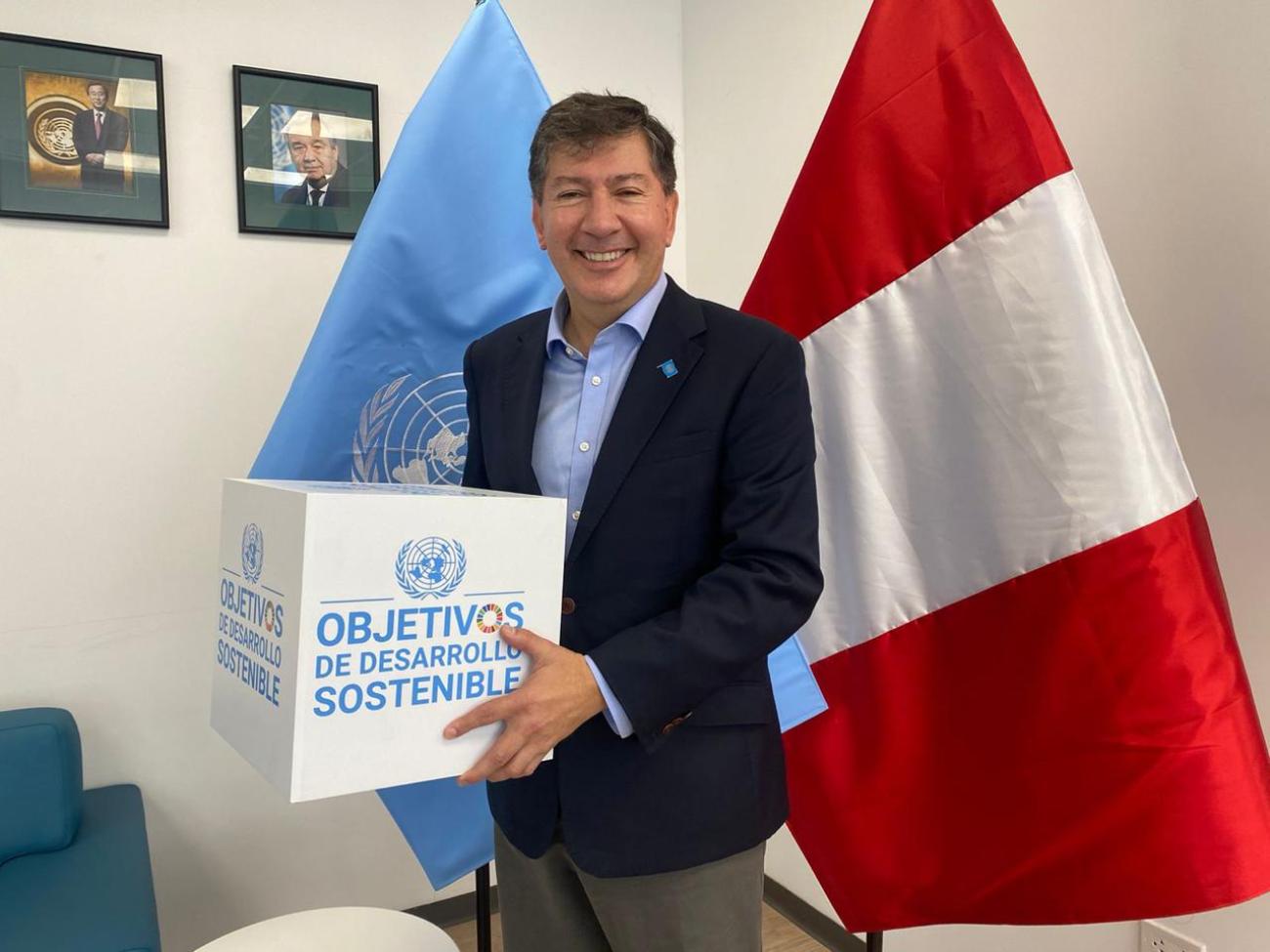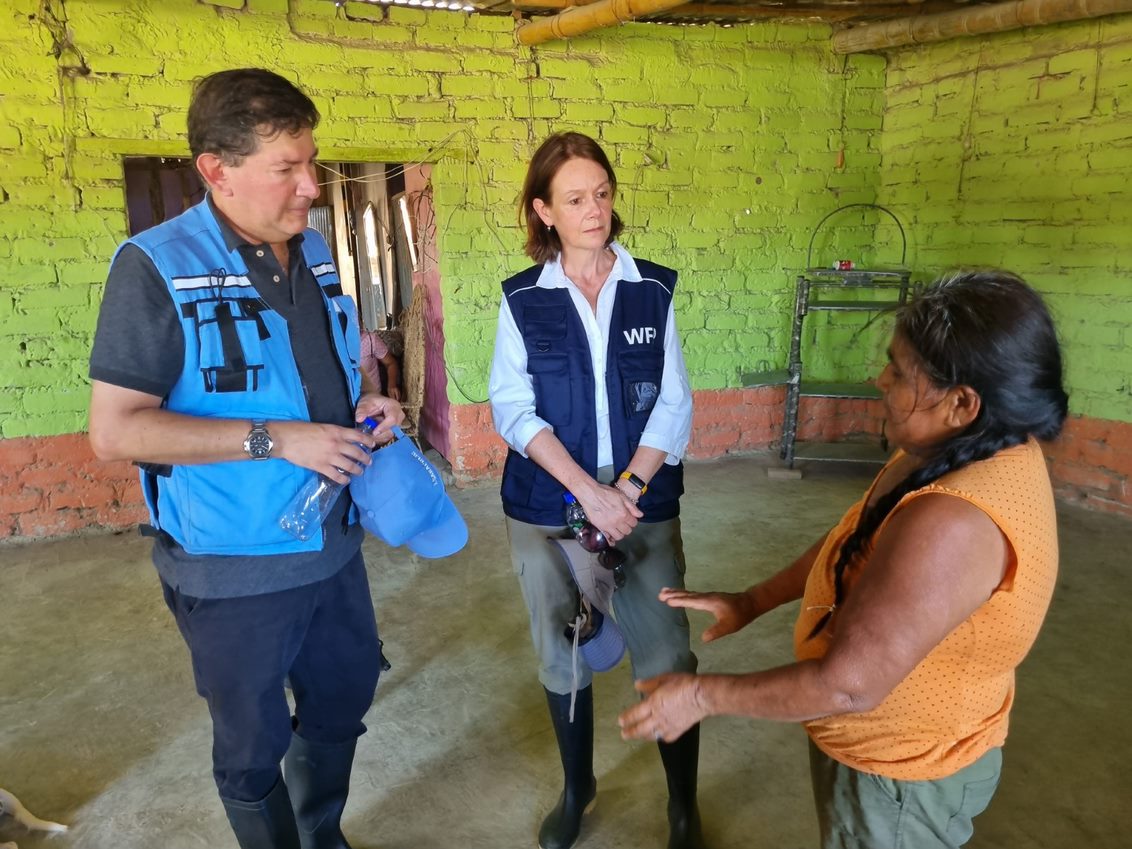Partnerships Forging the Path to Sustainable Development in Peru

As I prepare to conclude my five-year tenure as the UN Resident Coordinator in Peru, I reflect on how challenging and fulfilling these years have been and their culmination in many achievements for the UN in Peru. In this time, I have had to work closely with different teams managing the resources available to support the government in advancing developmental work in Peru.
Managing the Pandemic
I began my assignment in October 2019, very close to the time when the COVID-19 pandemic presented difficulties and uncertainties for people around the world. Peru was one of the countries most affected by the pandemic. As the Resident Coordinator, my primary role was to ensure that the entire UN system in Peru worked in a coordinated and strategic manner to support the country’s response. This was a moment where effective coordination was not just important-it was essential.
Through close collaboration with United Nations Children's Fund (UNICEF), World Health Organization (WHO) and the Peruvian Ministry of Health, we facilitated the rapid delivery of vaccines through the Covax mechanism. Together, we managed to facilitate four million vaccines. Ensuring the vaccines reached remote locations, such as in Ucayali region, required not just logistical planning but a unified effort across multiple agencies and stakeholders.
Humanitarian, Health and Environmental Crisis
On the tail of that crisis, in February 2022 our coordination mandate was further tested in the face of simultaneous crises. An oil spill in Ventanilla, the worst environmental disaster on Peru’s coastline, called for our immediate action. Working together, United Nations Development Programme (UNDP), United Nations Environment Programme (UNEP), and the World Bank mobilized quickly to assess the situation and contain the damage. Our role was to ensure that every effort was aligned with national authorities and to provide clear recommendations based on data-driven assessments. Comprehensive research gave clarity of the impact of the spill on fishermen and traders, as well as recommendations on the way forward.
Recently, our response to Cyclone Yaku in 2023 displayed the power of preparedness, collaboration and unity in action. In response to the impacts of the cyclone on the lives of thousands in Piura, a team from UNICEF, UN High Commissioner for Refugees (UNHCR) and the World Food Program (WFP) worked together to provide food and water to 600 people who sought shelter at the Municipal Stadium of Paita. By the end of 2023, the UN assisted more than 330,000 people facing challenges with emergency shelter, food security, water and sanitation, hygiene and transport needs.
Our relationship with government institutions, such as the Civil Defense Institute (Indeci) enabled us to provide assistance in such times facilitating efficient and coordinated responses in crisis. Our long-standing relationship and partnership with the Government made it possible to facilitate the purchase of food and water and distribute them in support to the affected communities.

A Valiant Team
Our mandate as the UN in Peru is not only to respond to crises but to advance the country's long-term development goals. Coordination has been at the heart of these efforts. Over the last five years, we worked tirelessly with government ministries, regional authorities, civil society and the private sector to align our support with Peru’s development priorities, particularly around the Sustainable Development Goals (SDGs).
Our UNESCO office within the Ministry of Culture premises and our work alongside Indeci are examples of our shared vision of sustainable development in Peru. The response to the Venezuelan migrant influx supported by UNHCR and the International Organization for Migration (IOM) is a testament to collaboration and partnership with the Peruvian Immigration Office to receive 1.6 million Venezuelans.
Working in a coordinated matter we have been able to bolster security and provide decent work by facilitating temporary resident permits for Venezuelan immigrants with the Government of Peru. This has enabled them to integrate, and contribute, to Peruvian society sustainably.
Looking towards the future
The UN in Peru, through UNICEF, Food and Agriculture Organization of the United Nations (FAO), United Nations Population Fund (UNFPA) and UNDP continue to work with different government sectors fighting food insecurity. Experts work with Government Ministries and Regional Governments to combat anemia and improve early childhood development. As I leave Peru, I am hopeful for the partnership for progress that will stay in place.
The UN in Peru will keep focusing on fostering partnerships that cut across sectors, ensuring that every initiative, from improving education to enhancing public health, is part of a larger, coordinated effort. The SDGs remain our guiding framework, and I am optimistic that through strong cooperation between the UN, the government, and civil society, we will continue to drive progress together.
This blog was written by UN Resident Coordinator for Peru from 2019 to 2024 Igor Garafulic. To learn more about the work of the UN in Peru visit peru.un.org













